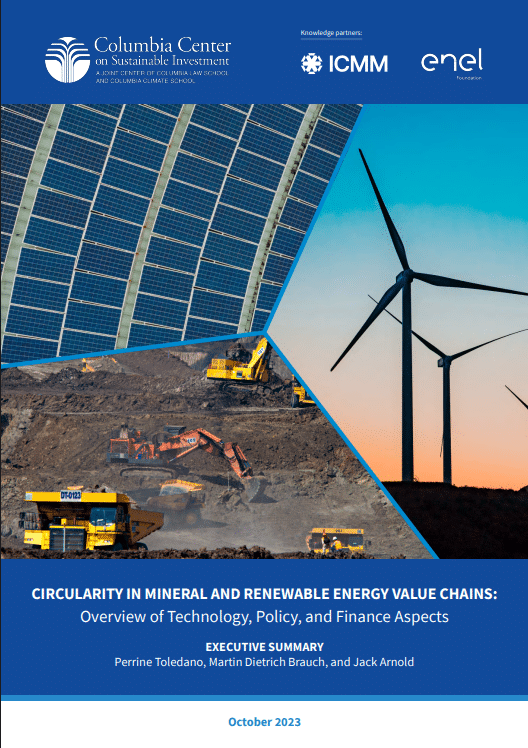Circular Economy in Mineral and Renewable Energy Value Chains
The global transition to renewable energy systems will be mineral intensive and, under the current linear economy conditions,...

The global transition to renewable energy systems will be mineral intensive and, under the current linear economy conditions, will exacerbate mining’s footprint on the planet. In addition, the material needs of a growing global population whose lives are increasingly digitized will further increase mineral demand.
The success of the mining and metals sector in the coming decades will depend on its ability to meet those needs sustainably by combining responsible primary extraction with circular economy approaches, and to seize the business advantages and broader economic opportunities associated with the circular economy.
In response to these challenges and opportunities, CCSI prepared and published the October 2023 research report Circularity in Mineral and Renewable Energy Value Chains: Overview of Technology, Policy, and Finance Aspects. Read here:
The report explores existing technology, policy, and finance conditions as well as reforms needed to enable global circularity in the mineral value chains of solar photovoltaic (PV) panels and wind turbines. It zeroes in on four key materials that are critical to solar and wind energy—aluminum, copper products, silicon, and steel—but many of its findings and conclusions are relevant and may be transferable to other energy transition value chains.
CCSI’s research unpacks the technological and logistical hurdles for circularity in solar and wind value chains, explores the necessary policy and finance conditions to enable the mineral and metals sector to play a role in the circular economy of solar and wind value chains, and highlights the need for companies to identify and adopt circular business models. The report concludes with calls to action for policy makers, mining and metals companies, solar and wind manufacturers and power utilities, and industry associations.
ICMM and the Enel Foundation supported the report and, as knowledge partners, provided invaluable feedback to the CCSI research team throughout the project.
Mining, Metals and Resource-based Development / Report
Document